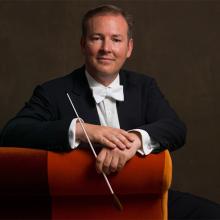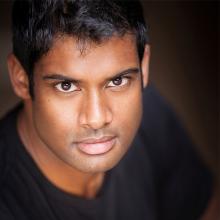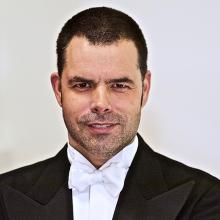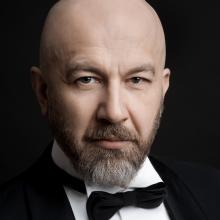Oedipus Rex / Antigone

Content
- Performance information
- In a nutshell
- The story
- Interview with Mart van Berckel (director Oedipus Rex) and Nanine Linning (director and choreographer Antigone)
- Interview with composer Samy Moussa
- Oedipus Rex: an unusual classic tragedy
- On the Greek in Antigone
- Biographies artistic team
- Biographies performers Oedipus Rex
- Biographies performers Antigone
Performance information
Voorstellings-informatie
Performance information
Oedipus Rex / Antigone
Igor Stravinsky (1882-1971) | Samy Moussa (1984)
Duration
1 hour and 40 minutes, no interval
This performance will be surtitled in Dutch and English
Sets and costumes
With the special permission of Vicki Mortimer, elements of the original design for Wayne McGregror's production of Jocasta's Line are used
Musical direction
Erik Nielsen
Stage direction Oedipus Rex
Mart van Berckel
Stage direction and choreography Antigone
Nanine Linning
Lighting design
Cor van den Brink
Dramaturgy
Luc Joosten, Laura Roling
Netherlands Philharmonic Orchestra
Chorus of Dutch National Opera
Chorus master
Edward Ananian-Cooper
Oedipus Rex
Opera-oratorio
Sung in Latin
New production
Composer
Igor Stravinsky (1882-1971)
Libretto
Jean Cocteau, based on Sophocles’ Oedipus Rex
Oedipus
Sean Panikkar
Jocasta
Dame Sarah Connolly
Creon
Bastiaan Everink
Tiresias
Rafał Siwek
Pastor
Linard Vrielink
Nuntius
Frederik Bergman
Speaker
Nazmiye Oral
Antigone
Oratorio
Sung in Ancient Greek
World premiere
Dancers of Dutch National Ballet
Antigone
Qian Liu
Polynices
Dingkai Bai / Rémy Catalan
Eteocles
Fabio Rinieri / Gabriel Rajah
Eurydice
Sandra Quintyn / Antonina Tchirpanlieva
Haemon
Sander Baaij / Gabriel Rajah
Composer
Samy Moussa (1984)
Libretto
Samy Moussa in collaboration with Niall Potter; based on texts by Aeschylus, Apollodorus, Empedocles, Euripides, Philostratus the Elder and Sophocles
Composition commission and co-production with Norwegian National Opera & Ballet (Oslo).
Antigone: Co-commission with Festival de Lanaudière (Canada).
Chorus of Dutch National Opera
Sopranos
Lisette Bolle
Jeanneke van Buul
Caroline Cartens
Nicole Fiselier
Melanie Greve
Maaike Hupperetz
Oleksandra Lenyshyn
Simone van Lieshout
Tomoko Makuuchi
Sara Pegoraro
Elizabeth Poz
Jannelieke Schmidt
Altos
Elsa Barthas
Anneleen Bijnen
Rut Codina Palacio
Johanna Dur
Yvonne Kok
Fang Fang Kong
Maria Kowan
Myra Kroese
Itzel Medecigo
Sophia Patsi
Marieke Reuten
Klarijn Verkaart
Tenors
Gabriele Bonfanti
Thomas de Bruijn
Pim van Drunen
Frank Engel
Milan Faas
Ruud Fiselier
Cato Fordham
Livio Gabbrielli
Dimo Georgiev
Stefan Kennedy
Roy Mahendratha
Tigran Matinyan
Sullivan Noulard
Martin van Os
Richard Prada
Mitch Raemaekers
Mirco Schmidt
Raymond Sepe
Francois Soons
Julien Traniello
Jeroen de Vaal
Bert Visser
Rudi de Vries
Basses
Ronald Aijtink
Peter Arink
Nicolas Clemens
Emmanuel Franco
Jeroen van Glabbeek
Julian Hartman
Agris Hartmanis
Hans Pieter Herman
Sander Heutinck
Tom Jansen
Maksym Nazarenko
Tobias Odenwald
Christiaan Peters
Matthijs Schelvis
Jaap Sletterink
Vincent Spoeltman
René Steur
Rob Wanders
Jouke Wijmenga
Extras
Renato Bertolino
Frans Dam
Yannick Jhones
Renzo Popolizio
Hans van Rijswijk
Floor Scholten
Claartje van Swaaij
Dance extras Antigone
Nicky van Cleef
Yannick Jhones
Rowin Prins
Valentin Quitman
Netherlands Philharmonic Orchestra
First violin
Saskia Viersen
Koen Stapert
Tessa Badenhoop
Valentina Bernardone
Anuschka Franken
Hike Graafland
Marieke Kosters
Derk Lottman
Marina Malkin
Paul Reijn
Marijke van Kooten
Henrik Svahnström
Stephanie van Duijn
Sarah Lynn Huizing
Second violin
David Peralta Alegre
Marlene Dijkstra
Mintje van Lier
Jeanine van Amsterdam
Karina Korevaar
Wiesje Nuiver
Lilit Poghosyan Grigoryants
Joanna Trzcionkowska
Maren Bosma
Eva de Vries
Anita Jongerman
Phoebe Tarleton
Viola
Dagmar Korbar
Laura van der Stoep
Odile Torenbeek
Marjolein de Waart
Giles Francis
Suzanne Dijkstra
Avi Malkin
Stephanie Steiner
Anna Jurriaanse
Berdien Vrijland
Cello
Alexandre Castro-Balbi
Douw Fonda
Nitzan Laster
Carin Nelson
Rik Otto
Anjali Tanna
Atie Aarts
Sebastian Koloski
Double bass
Luis Cabrera Martin
Gabriel Abad Varela
Julien Beijer
Sorin Orcinschi
Peter Rikkers
Larissa Klipp
Flute
Hanspeter Spannring
Ellen Vergunst
Margreet Niks
Oboe
Toon Durville
Juan Pedro Martinez
García-Casarrubios
Maxime le Minter
Clarinet
Leon Bosch
Rick Huls
Peter Cranen
Bassoon
Margreet Bongers
Dymphna van Dooremaal
Jaap de Vries
Horn
Fokke van Heel
Miek Laforce
Stef Jongbloed
Fred Molenaar
Trumpet
Gertjan Loot
Jeroen Botma
Marc Speetjens
Niek Jacobs
Trombone
Bram Peeters
Wim Hendriks
Jelle Koertshuis
Tuba
David Kutz
Timpani
Theun van Nieuwburg
Percussion
Matthijs van Driel
Diego Jaen Garcia
Nando Russo
Martin Geessinck
Harp
Sandrine Chatron
Keys
Daan Kortekaas
Productieteam
Assistent-dirigent
Boudewijn Jansen
Assistent-regisseurs
Astrid van den Akker
Noah van Renswoude
Nico Weggemans
Avondregie
Astrid van den Akker
Balletmeester
Sandrine Leroy
Repetitoren
Jan-Paul Grijpink
Abigail Richards
Taalcoach koor
Valentina di Taranto
Taalcoach Oedipus Rex
Flavio Aulino
Taalcoach Antigone
Sophia Patsi
Assistent-koordirigent Oedipus Rex
Ad Broeksteeg
Assistent-koordirigent Antigone
Kuo Jen Mao
Titelregie
Eveline Karssen
Bediening boventiteling
Irina Trajkovska
Orkestinspecteur
Frouke Terpstra
Assistent kostuumproductie
Michelle Cantwell
Mariama Lechleitner
Eerste toneelmeester
Peter Brem
Eerste belichter
Cor van den Brink
Eerste rekwisiteur
Peter Paul Oort
Eerste kleder
Jenny Henger
Eerste grimeur
Iris Grozdanoska
Geluidstechnicus
Florian Jankowski
Hoofd muziekbibliotheek
Rudolf Weges
Voorstellingsleiding
Nicholas Sperling
Wolfgang Tietze
Emma Eberlijn
Artistieke planning
Vere van Opstal
Productievoorbereider
Sieger Kotterer
Productieleiding
Joshua de Kuyper
In a nutshell
In het kort
In a nutshell
Antiquity
The works of Stravinsky and Moussa are connected by the setting for the two tales: the ancient city of Thebes, where a curse seems to rest on King Oedipus and his descendants. These stories have come down to us from Antiquity most notably through the tragedies of the playwright Sophocles (fifth century BCE). Three of the plays he wrote — Oedipus Rex (c. 429 BCE), Oedipus at Colonus (c. 406 BCE) and Antigone (c. 441 BCE) — deal with events in Thebes.
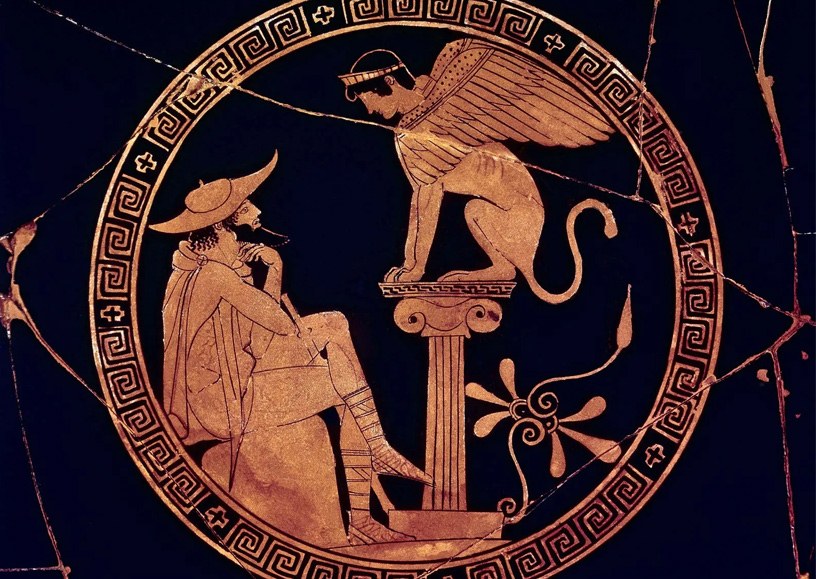
Political tragedy
The story that is told in Oedipus Rex/Antigone is not just a painful family history: in the production directed by Mart van Berckel and Nanine Linning, it is above all a political tragedy in which we see a community destroy itself. In Oedipus Rex, the stage director Mart van Berckel stresses the bloodthirsty urges of the people of Thebes. Agonising under the yoke of the plague, the masses give vent to uncontrollable forces. Oedipus’ ambitious brother-in-law Creon, a canny populist, cynically exploits these urges. Even after the community has found its scapegoat in Oedipus and driven him out, their thirst for blood has still not been quenched. An exceptionally violent civil war breaks out as the sons of Oedipus fight one another for power over the city. Nanine Linning sets Samy Moussa’s new composition Antigone in an exhausted city, tired of all the in-fighting. Creon tries to restore order by force, but in doing so he loses sight of the human dimension.
Oedipus Rex: narrator, chorus and soloists
Oedipus Rex (1927) is based on the tragedy by Sophocles. It explores the idea of a formal, stylised work of music theatre. The action is framed by a narrator who describes the events before they are presented on stage. His words (or her words in this production), spoken in the audience’s language, were written by Jean Cocteau. The text that is sung is also by Cocteau but translated into Latin to add a sense of distance and grandiosity to the drama. Stravinsky called the work an opera-oratorio and he envisaged a minimalist, stylised staging.
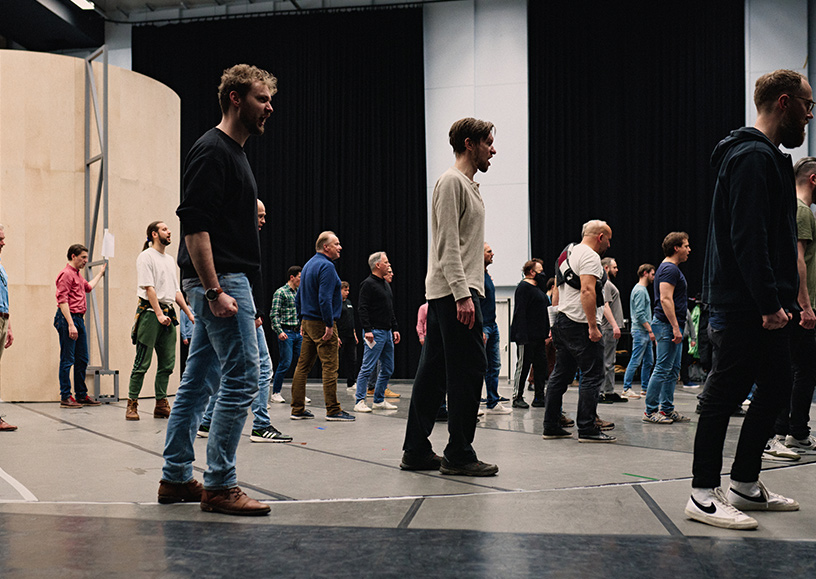
Antigone: sung in Greek
Samy Moussa chose not to adapt Sophocles’ play Antigone directly for his Antigone (2020). Instead, he studied a wide variety of ancient sources, ranging from the fragments of surviving poetry by the pre-Socratic philosopher Empedocles (fifth century BCE) to sentences from the Bibliotheca (a prose work) of Pseudo-Apollodorus (first or second century CE).
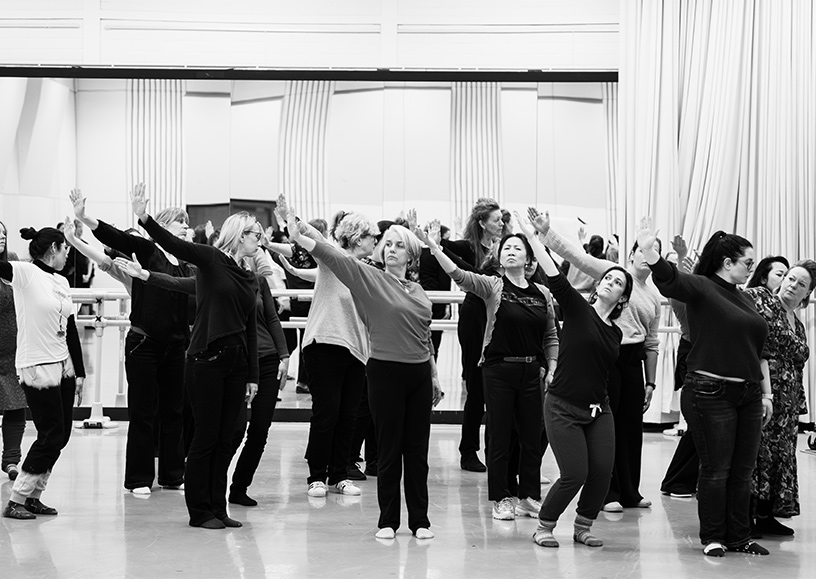
Antigone: the chorus as the narrator
It is striking that unlike Stravinsky, Moussa does not have any characters performing as individual singers. The only texts are for the female chorus, who recall the events in Thebes following the death of Oedipus in various scenes. In Moussa’s work, the chorus occupies an intermediary position between the characters in the action and the audience. Sometimes the chorus is intensely emotionally involved in the action — as is evident from the extended shriek of the singers at the start of their performance — while sometimes they relate what is happening in a more aloof way.
The story
Het verhaal
The story
Background
When an Oracle warns King Laius, Oedipus’ father, that his son will kill him and bring misery upon his descendants, Jocasta (his wife and Oedipus’ mother) orders a shepherd to pierce the child’s ankles (the name Oedipus means ‘swollen foot’) and abandon him to his fate on a mountainside. But the shepherd cannot bring himself to leave the boy to certain death and he gives the child to a messenger employed by King Polybus of Corinth. Polybus and his wife Merope, who are childless, decide to raise Oedipus as their own son.
After reaching adulthood, Oedipus suddenly starts having doubts about his true origins. In search of the truth, he turns to the Oracle of Delphi. He is simply told that he will kill his father and marry his mother. To prevent the Oracle’s prediction from coming true, Oedipus decides never to return to Corinth. At a narrow road crossing near Thebes, he becomes embroiled in an argument with a man who demands right of way first. The argument becomes so heated that Oedipus ends up killing the man. What Oedipus does not realise is that the victim of this fatal conflict is none other than Laius, his biological father.
At this point, the city of Thebes is being terrorised by the Sphinx, a winged monster with the upper body of a woman and the lower body of a lion. No one can gain access to the city until a mysterious riddle has been solved. Attempting to solve the riddle and failing is punished by death. Oedipus takes on the challenge and is successful. He defeats the Sphinx and liberates the city of Thebes, which welcomes him as their saviour. He is offered the hand in marriage of Jocasta, the widow of the dead King Laius, and becomes the new King of Thebes.
Oedipus Rex
The city of Thebes is suffering from the plague. The furious inhabitants call on their king, Oedipus, to do something. He promises help. His ambitious brother-in law, Creon, has heard from the Oracle that the plague has taken hold because the man who murdered the previous king, Laius, is still living in the city. Oedipus pledges to find this man. He consults the blind seer Tiresias, who is reluctant to speak but eventually tells Oedipus, “The king’s murderer is a king.” Oedipus is shocked and suspects Creon and Tiresias of plotting against him.
Jocasta, Laius’ widow and now Oedipus’ wife, tries to calm her husband and impresses upon him that oracles are liars. After all, the Oracle’s prediction that Laius would be murdered by his own son did not come true: Laius was killed at a crossroads. This news startles Oedipus. He killed an old man at a crossroads years earlier.
A messenger arrives, bringing news of the death of Oedipus’ supposed father, King Polybus of Corinth. He reveals that Oedipus was not Polybus’ biological son, but was adopted by him after being abandoned as a baby on Mount Cithaeron. When Jocasta hears this, she realises that Oedipus is her son and killed his father. Oedipus too is eventually forced to recognise the truth. Jocasta hangs herself and Oedipus gouges his own eyes out with her golden pin. Blinded, he appears before the citizens of Thebes before turning away and leaving the city for good.
Antigone
Thebes is in the throes of a civil war. Eteocles and Polynices, the sons of Oedipus and Jocasta, had originally agreed to rule the city jointly but they ended up fighting one another. Eteocles has seized sole power and Polynices has gathered troops to attack Thebes. The bloody battle ends in a duel in which the two brothers kill one another.
Creon, who now becomes the King of Thebes, tries to restore order in the city. He arranges a ceremonial burial for Eteocles but forbids the burial of Polynices’ corpse on pain of death. He wants the body of the brother who attacked his own city to rot away on the battlefield — a cruel punishment as it deprives Polynices of the possibility of finding rest in the Underworld after his death.
Creon’s decree is unacceptable to Antigone. As the sister of Eteocles and Polynices, she cannot bear this violation of her sacred duty to one of her deceased brothers. She secretly arranges a symbolic funeral. Creon’s soldiers see this and report the incident to the king. Creon condemns Antigone to death and confines her in a tomb that is bricked up. Warned by the seer Tiresias, he has Antigone’s tomb opened, but she has already hanged herself. Haemon, Creon’s son and Antigone’s betrothed, throws himself upon his sword. His mother Eurydice also commits suicide and Creon is left behind, distraught.
A family drama, but also a political tragedy
Interview with Mart van Berckel (director of Oedipus Rex) and Nanine Linning (director and choreographer of Antigone)
A family drama, but also a political tragedy
Calling it a ‘tough challenge’ is an understatement. Mart van Berckel and Nanine Linning had to step into the breach when they were asked four weeks before the premiere to come up with a new concept for Oedipus Rex/Antigone after Wayne McGregor had to pull out for personal reasons. Halfway through this compressed rehearsal period, they both seem enthusiastic, focused and driven. The combination of classical tragedies and modern music ensures a unique theatrical experience.
Normally, preparations would start long in advance for a production like this intended for the main theatre. “I got a phone call Tuesday evening,” says Mart van Berckel, “and on Wednesday morning I said I’d do it. I spent that evening listening non-stop to the music, reading everything I could find and thinking about how I could approach it. Stravinsky’s Oedipus Rex appealed to me immediately and it’s very much my thing: it’s written as an opera-oratorio, it’s very grand – in part thanks to the use of Latin – and there isn’t much dialogue: there is spoken text and the characters have long monologues. Yet it works like a successful Netflix episode: it lasts fifty minutes and it’s thrilling from start to finish. The transitions are abrupt, in part because the narrator keeps intervening, but you immediately see each individual scene. The music is wonderful, very sophisticated, at a good pace and with interesting choices. Sometimes the music seems out of sync with the action — for example, at one of the most dramatic moments the music is surprisingly upbeat. That offers possibilities for you as a director.”
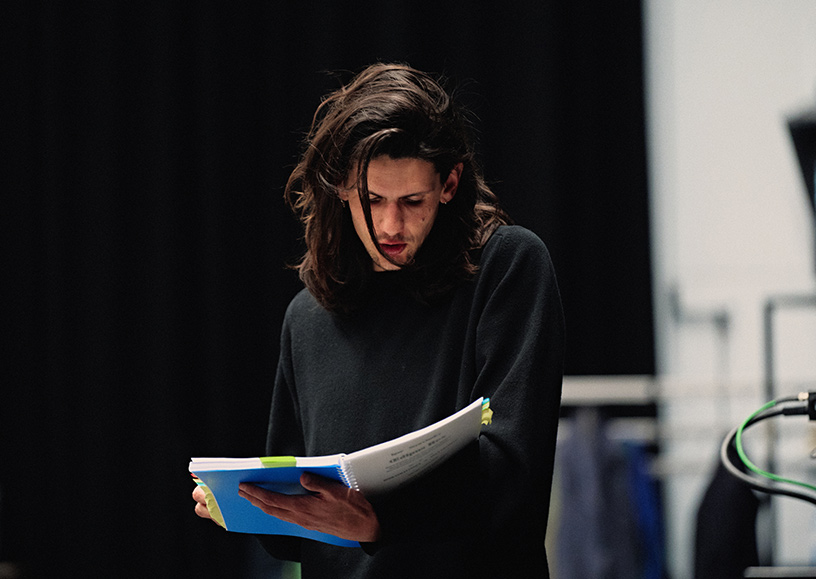
Nanine Linning was enjoying pretty much her first day off after months working on new policy plans for the period 2025-2028 when she got the call asking her to direct and choreograph Antigone. “I’d been talking to the executive directors at Dutch National Opera & Ballet for a while about a collaboration for a crossover production with opera and ballet, but of course we never expected to get this opportunity so soon. This is a fantastic challenge for me.” She too did not need much time to come to a decision; she was given the sheet music and a recording — a simplified version for piano and a female chorus — of the new composition by Samy Moussa. “I knew at once: this is made for me. It’s wonderful music, really rich in poetic worlds and each note tells the story. The sung text is really to the point, without a single extraneous word. There is no action and no dialogue. The whole text fits on one A4. Samy Moussa originally wrote the libretto for the oratorio Antigone in English and then translated it entirely into Ancient Greek. Together, the orchestra and the all-female chorus tell an inescapable story in which more and more silent pauses fall. Painful silences, in which everything and everyone are ruined.”
Contrasting and complementary works
Van Berckel and Linning first each worked out their own concepts. Then they sat down together to see where there were similarities, where there were differences and where they might be able to draw meaningful parallels. After consulting the musical leader Erik Nielsen, they soon agreed the two works should be played one after the other without an interval. Van Berckel: “They are contrasting but also complementary works: Oedipus Rex was written as an opera-oratorio for a male chorus and Antigone was composed for a female chorus alone. We have the female chorus enter at the end of Oedipus Rex. And the male chorus is still present during the first minutes of Antigone, when the fight takes place between the two brothers. A number of the main characters from Oedipus Rex, King Creon and Jocasta for example, are also physically present in Antigone.”
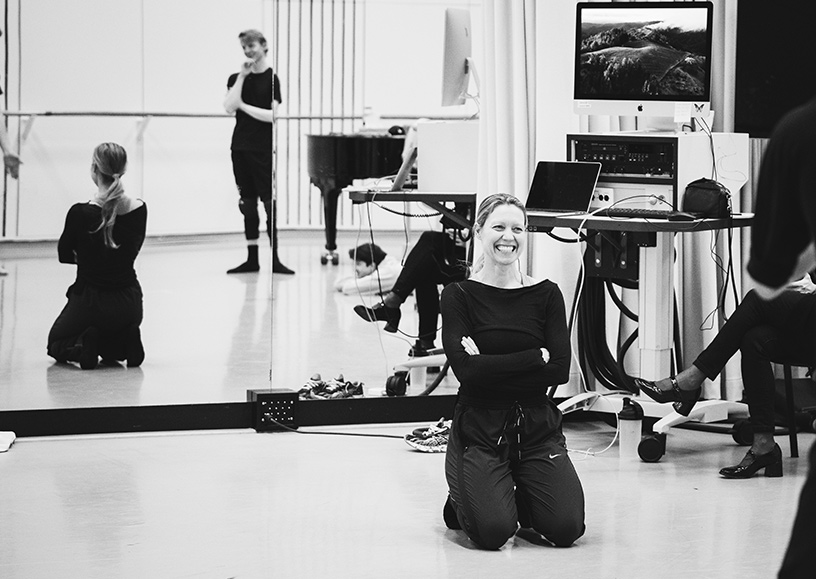
The works of Stravinsky and Moussa are connected by the setting for the two tales: the ancient city of Thebes, where a curse seems to lie on King Oedipus and his descendants. In the stage direction of Van Berckel and Linning, this is not just a harrowing family history, but also a political tragedy.
Furious mob
As Van Berckel explains, he has chosen to emphasise the role of the male chorus. “The chorus sounds menacing from the start, like a bunch of hooligans in the stands of a football stadium, a furious mob, a terrifying crowd that could evoke associations with the storming of the Capitol. The whole tragedy unfolds under pressure from the chorus; their threatening presence triggers a chain reaction, and tensions rise. The people are angry and feel powerless after the city has been ravaged by the plague for so long. Immense forces are set loose by this.”
“The people are counting on Oedipus to turn the tide. In fact, they’re demanding it. In my interpretation, Oedipus is not really that good a king. Of course, this inevitably leads to tensions with Creon and Jocasta, who is both Oedipus’ wife and mother. The Oracle who is consulted makes it clear the plague has been caused by the unsolved murder of the previous king. The search for the murderer eventually leads to Oedipus himself, who it turns out has killed his own father and is sleeping with his own mother. Just when the tensions in the city are reaching boiling point after the Oracle’s pronouncement, Jocasta changes the atmosphere completely. She uses her charm to manipulate everyone by arguing that oracles always lie — and she gets away with it too. That reminds me of today’s debate about ‘alternative facts’. She finds the truth inconvenient, so she rewrites it.”
Civil war
Antigone is set some ten years later. Oedipus has left the city and his sons, Eteocles and Polynices, have become embroiled in a power struggle, propelling Thebes into a civil war. Linning: “The city is in ruins and its people are exhausted after so many years of war. The soldiers drag themselves across the battlefield, groaning and sighing. The work has a very dynamic start with the battle between the two brothers Polynices and Eteocles. They fight a duel that ends in both their deaths. At that point the female chorus starts to sing, telling the audience what happens next in the drama. Incidentally, I bring the two brothers back later on in the opera: in a flashback, we see them fooling around together as two lively boys.”
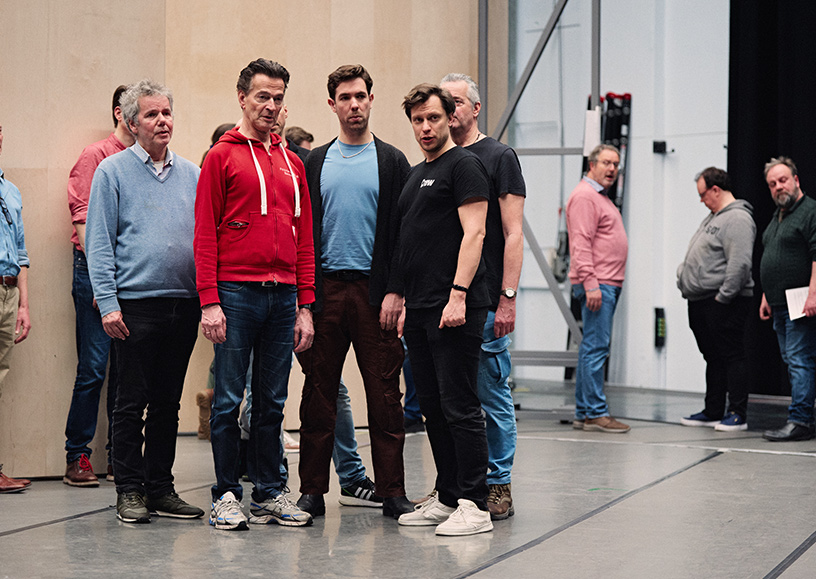
“There are no individual characters who sing in Moussa’s libretto. The music invites me as a director to work visually. The physical language of the empathic female chorus is based on breathing. The women move like a single lung, as it were — they embody what they are singing. They suffer in tandem with Antigone and that becomes evident from their body language: the way they use their hands, extend their fingers, stay focused and stand bent. When the text talks about Creon, their movements become more jagged, tyrannical and forceful. The male chorus has another physical language: they don’t sing and can barely still stay on their feet. They are broken, physically and morally.”
“When I listened to the music, I immediately saw a third idiom of movement before me, that of the phenomenal dancers of Dutch National Ballet. They perform the roles of Antigone, the brothers Polynices and Eteocles, Eurydice and Haemon. They abstractly convey the rawest of emotions, using their bodies and the moving wall. At first, Antigone merely mourns the loss of her brothers. Later, we see her re-energised when she decides to stand up to the regime.”
The human dimension
Antigone defies Creon, who refuses to allow the burial of one of the two brothers for political reasons. He is a canny politician who is trying to restore order by force, but in doing so he loses sight of the human dimension. Antigone decides to bury her brother despite the ban.
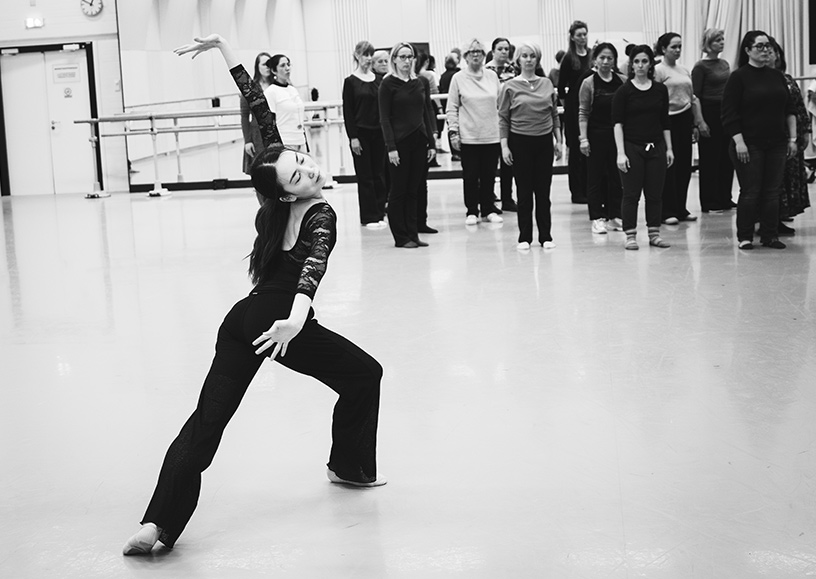
Linning: “For Antigone, the human dimension takes priority. The chorus tries in vain to mollify Creon: ‘Be gentle, be merciful’. Then there is a magical moment, a scene Moussa calls a ‘Supernatural Burial’. We hear a kind of sandstorm of sighs, with the musicians in the orchestra pit joining in the sighing too. You see the family gathered together next to Polynices’ corpse. Then there is an incredibly beautiful solo by Antigone. You see the transition, from her mourning, bent double with grief, to her gradually starting to take action. She takes her brother’s body to give him a burial after all, but she is soon detained. Creon is merciless: her punishment is to be buried alive.”
Associations
The chorus then turns directly against Creon but it is too late. Rather than die the way Creon intends, Antigone resolves to end her life herself. In a final scene that is as horrifying as it is impressive, Haemon and Eurydice also commit suicide. Creon remains behind, all alone on the stage. Linning: “Antigone is not a heroine in the Joan of Arc mould but she feels unable to leave her brother rotting on the battlefield. She revolts against the inhumanity of that. Really, you are seeing two opposing worldviews: Creon stands for law and order, while Antigone stands for justice. Neither Mart nor I emphasise current affairs in our direction, but I suspect many will make such associations. Navalny is still very much on people’s minds, and of course in the first work there’s the storming of the Capitol in America in 2021. We certainly don’t lay it on with a trowel, though, as these are first and foremost classic stories with a universal message.”
Kinetic qualities
“I am incredibly impressed by Anna Ol and Qian Liu, the two principal dancers who play Antigone. My dance idiom is contemporary. I work a lot with gravity and resistance, two kinetic qualities that are diametrically opposed to classical ballet techniques. It is lovely to see the two star dancers become transformed. We have merged their technique with mine, and they are dazzling, each in their own unique way. The two brothers on the battlefield are constantly in the air. Jumps are the most powerful element through which a body speaks and one of the most characteristic qualities of male ballet dancers. They are so explosive that they seem to have virtually superhuman powers.”
Wooden walls
The set design uses rotating wooden walls. According to Van Berckel, this offers an opportunity in Oedipus Rex to play with hiding and revealing things: “It makes it easy to suggest multiple spaces. In the original libretto, the story takes place in an open space, such as a city square, but I wanted to have the possibility of private conversations. That allows me to explore the tension between what is public and what is private, even if the chorus is present the whole time in Oedipus Rex, sometimes in the background and sometimes threatening and coming forward.”
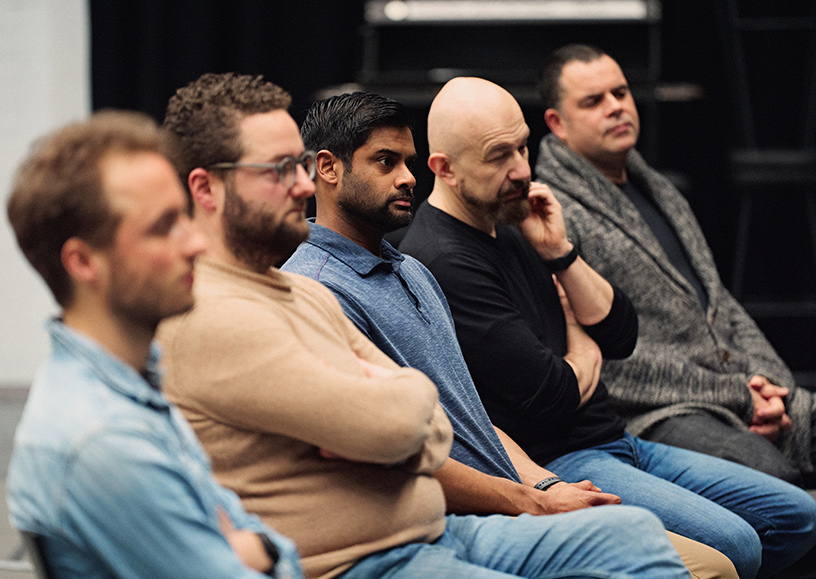
Just one wall is left in Antigone, explains Linning. “The city has been devastated and only ruins remain. That one wall is involved in all kinds of ways; it illustrates the inevitable denouement, as it were. I use the wall as a kind of alter ego for Creon, forcing and pushing people. Literally. His actions leave a trail of victims. And at the end, the wall is almost a reflection of Creon. He has to confront his deeds; the evidence is literally pushed into his face. While the walls in Oedipus Rex provide structure, in Antigone the wall becomes dislocated and violent. You see the dead and the fallen. The chorus laments, ‘Too late, Creon, too late.’ And as the wall disappears into the background, Creon is left behind, alone. A blackness issues from his pores and it is as if he implodes. He remains behind as the central tragic figure, to show the spectators what consequences certain decisions have.”
Narrator
In the first work, Oedipus Rex, the story is told not just by the soloists and the chorus but in another way too. Van Berckel: “Stravinsky included a speaking voice in his composition, a narrator who links the events together. I wanted someone who is not part of the opera world, and I wanted a woman as there is enough testosterone surging through Oedipus Rex already. I chose the actress and theatre-maker Nazmiye Oral. It had to be someone with a lot of charisma and stage presence, someone who can suggest intimacy while still reaching the side seats of the upper circle. Which she can! We made a few changes to the text, not to the content but just to make it slightly less archaic. The spoken text addresses the audience directly in the here and now, in 2024, bringing us down to earth as it were.”
Text: Margriet Prinssen
‘We are heirs’
Composer Samy Moussa on Antigone
‘We are heirs’
In 2020, Canadian composer-conductor Samy Moussa composed his oratorio Antigone for female chorus and large orchestra, which is now receiving its world premiere. A conversation with the composer about the sources for his libretto, his musical choices and the Ancient Greek language.
How were you approached for this composition? And what made you agree to it?
“I was approached by the conductor Erik Nielsen and Sophie de Lint, director of Dutch National Opera. Sophie de Lint and I had a very open conversation. I was not required to write a sequel or a response to Igor Stravinsky's work, but rather asked if writing a new work for the stage would match my own artistic ideas and interests as a composer. The form it took was left completely up to me.”
“I have a passion for Ancient Greece — its, philosophy, mythology and literature. I regularly read surviving texts, often fragmentary, and the tragedies. I have a particularly fondness for the Presocratics, the natural philosophers who sought explanations for the origins and workings of the universe, as well as natural and metaphysical processes. The story of Oedipus and his descendants had also fascinated me for some time, precisely because it deals with politics and ethics. My interest in the subject matter, combined with the freedom to shape the work, convinced me to accept the invitation.”

“It is important for me that my compositions are enduring, that they have a life after their premieres, perhaps also in different contexts. This certainly applies to Antigone, which, as an oratorio can also be performed in the concert hall. I wrote the work to stand on its own, not as a complement or response to Igor Stravinsky's Oedipus Rex.”
You wrote the libretto yourself. What is striking is the large number of sources you drew from for this: Aeschylus, Apollodorus, Empedocles, Euripides, Philostratus Maior and Sophocles. Why didn't you choose to just adapt Sophocles?
"I knew Sophocles' three Theban tragedies, Oedipus Rex, Oedipus at Colonus and Antigone, but it was clear to me right from the start that I did not want to do a Sophocles adaptation. An important consideration was that I wanted my composition to be relatively economical. That is why I chose not to introduce individual singing characters, but to have all the text sung by the chorus, which narrates the events rather objectively.”
“I must admit that I acknowledge Sophocles' Antigone undoubted literary potency. However, for me, his Antigone works better 'on the page' rather than 'on the stage'. It takes a lot of context — therefore a lot of text — and knowledge to frame and make understandable the layers contrasted in his version. Furthermore, adapting Sophocles’ Antigone would have required several cuts, therefore cancelling its singularity and poetic beauty.”
“Moreover, I was keenly aware that this narrative material did not belong to Sophocles alone; different authors each dealt with the subject matter in their own way. For instance, we know that Euripides, that other great Athenian tragic poet, also wrote an Antigone. Only a few fragments of it have survived, but I have studied them and managed to include one in my libretto. And those who, like me, have fondness for the Presocratics, will recognise that I also incorporated a fragment by Empedocles in section 6 (Supernatural Burial)."
Overview of Samy Moussa’s Antigone
PART 1
1. Prologue
2. The Brothers
3. Parodos: As many fell
4. Proclamation
5. Oracle
6. Supernatural Burial
PART 2
7. Libation
8. Entombment
9. Counsel
10. Exodus: Creon’s tragedy
Why this interest in such diverse — sometimes very fragmentary — sources?
“What characterises me as a person is my inquisitive attitude. I am always trying to gather more knowledge. I try not to stay on the surface. For another project, I recently spent two months in Georgia, in the Caucasus. I went there to conduct the national orchestra and compose — and so was born Adgilis Deda, a hymn for orchestra — but ended up also researching Georgian vocal tradition, both secular and sacred. That kind of research brings me tremendous insight, and, for Antigone I studied several Ancient Greek sources for passages and imagery that expressed with great directness what I wanted to say. From these various sources, I compiled the libretto.”
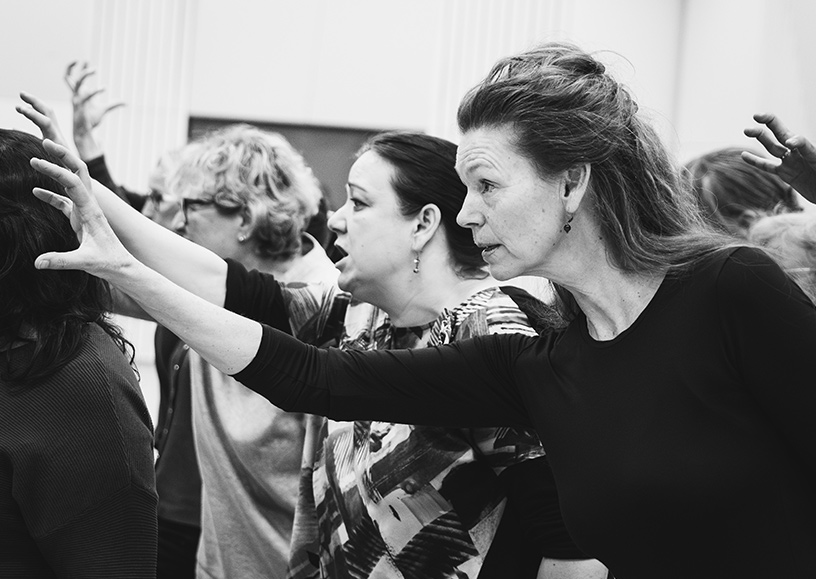
“I reduced the events in Thebes to ten sections divided into two larger parts. In these sections, I wanted the chorus to act from a certain detachment or objectivity. In this regard, the chorus is different in nature from the traditional Greek chorus. In Greek tragedy, the chorus often has an emotional or judgmental involvement in events. That's exactly what I did not want. For my libretto, and especially the start where the chorus first expresses itself (section 3, Parodos: As Many Fell), I was looking for a certain factuality. For this, the Bibliotheca of the mythographer Apollodorus was a particularly appropriate source. Apollodorus wrote prose, very much to the point, with the attitude of a historian. I am beholden to this extraordinary work.”
Initially, the chorus does indeed have a certain detachment, but this seems to gradually give way to greater involvement. In the last two sections, the chorus even addresses Creon directly.
"That's right. It was my plan to maintain a detached objectivity throughout the work, except for particular moments, near the end. Originally, my own sympathies lay strongly with Creon. His adherence to the rule of law stems from a desire to ensure the survival of moral and legal principles at the political level, taking precedence over family ties or personal desires. However, he is warned twice, first by the Oracle and later by the chorus directly. I thought of Antigone has having no view of the big picture, believing her own feelings to be more important. It appeared short-sighted. Like Creon, she is also warned, in her case by a decree, or as I call it, a ‘proclamation’. But if one digs deeper, the position of Antigone is not selfish but the very opposite. She submits to metaphysical considerations, thus advocating them. In section 7 (Libation), where Antigone first comes to the fore, the music is at its most tender. For the first time in the work, the strings play long notes. It is a strikingly lyrical moment, and you can also hear the chorus’ restrained empathy when they sing ‘her tears are sisterly’. The word ‘sisterly’ expresses a certain sentiment.”
You have, remarkably, called the last part of your Antigone 'Creon's tragedy'.
“I owe this section’s title entirely to the philologist Jean Bollack. I find Creon's tragedy fascinating. In trying to do the right thing, to not let arbitrariness rule, he goes just one step too far. He rectifies his mistake — and this is perhaps the most beautiful and tragic element — but by then it is too late: not only Antigone, but also his son Haemon, Antigone’s fiancé, and his wife Eurydice have committed suicide. He is the one who, as at the end of Sophocles' Antigone, is left behind, broken and empty-handed.”
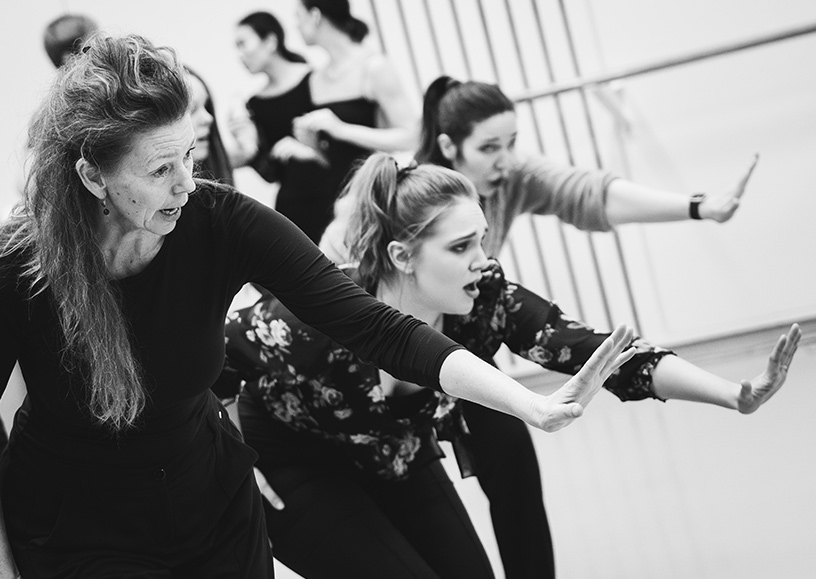
“It is his fate that I emphasise in the tenth and final section of Antigone. The music starts from a breathing sound, which gradually changes colour and gets louder and louder, until it can grow no further. The music exudes an atmosphere of fatality and inevitability.”
You have chosen to open Antigone with the deadly fight between the brothers Eteocles and Polynices. Sophocles' tragedy begins just after their deaths. Why was it important to start with this battle?
“I felt it was important for my work to make it palpable how torn and damaged Thebes has become as a city. The fatal war between the two brothers is crucial to understanding what is at stake in what follows. I also did not want to explain it later on. So musically, Antigone begins with a big climax. The finale, on the other hand, is in a sense anticlimactic in its mercilessly lethal ending.”
At key moments in the work, certain musical motifs recur in a different guise.
“Yes, certain musical elements are important foundations in the work. Take for example the melody the chorus sings in section 4 (Proclamation) to narrate Creon's decree. This returns later in the piece, at a crucial moment in section 8 (Entombment), exactly when Antigone breaks Creon's decree and gives her brother his funeral. We hear it now in the trombones, almost like a fanfare, and it has a very different connotation. It no longer sounds distant, it has metamorphosised. "
You wanted your libretto to be in Ancient Greek. Why was this important for you?
“It felt natural to compose a libretto in a language similar to that spoken when this story was first told, at least 2,500 years ago. I offer an alternate version in English in the score, but the Ancient Greek version is highly preferable, even though few people will be able to understand textually what is being sung. They do not have to. Just because one does not understand a language, it does not mean one cannot understand what is meant. The mystery and sound of it are also very powerful.”
“In aesthetic and ethical terms, the idea of cultural continuity is fundamental to me. The use of Ancient Greek allows me to emphasise the connection between antiquity and us, now. We are the same. As contemporary human beings, we do not exist in a vacuum, we do not depart from a tabula rasa. Rather, we exist in a context shaped by the people who came before us. Whether they created beautiful things or committed terrible crimes, or both — we live with their legacy. Just like them, we are also leaving some traces. It is an awesome opportunity and responsibility. Some people try to learn from mistakes. Some try to perpetuate knowledge and ideals. Some produce new ideas. Art and invention is still possible. All this has tremendous value. We are heirs.”
Text: Laura Roling
Oedipus Rex: an unusual classical tragedy
Oedipus Rex: een ongewone klassieke tragedie
Oedipus Rex: an unusual classical tragedy
On 25 February 1928, one year after the premiere in Paris, Arnold Schönberg saw the second staged performance of Oedipus Rex at the Kroll Opera House in Berlin. Otto Klemperer was in charge of the music. He had also taken responsibility for making sure Stravinsky’s stage directions and remarks in the musical score were followed precisely. Schönberg was not the only famous name in the audience that night. Kurt Weill, Paul Hindemith, Albert Einstein and the author and librettist Hugo von Hofmannsthal had also turned up. And Stravinsky himself had come to Berlin for the occasion. It was the first time he was able to see a staged performance of his work.
The premiere in concert form, conducted by Stravinsky himself, had taken place on 30 May 1927 in the Théâtre Sarah Bernhardt in Paris. The reception was muted; sandwiched between two successful ballets for the Ballets Russes, the opera-oratorio Oedipus Rex proved to be too taxing an experience for the audience, for whom the work’s form and language were so alien. Diaghilev, the leader of the Ballets Russes, in honour of which Oedipus Rex had been written, even spoke of “a very macabre gift”. While Le sacre du printemps had caused a storm of outrage in 1913, the response to Stravinsky’s latest work generally ranged from polite to cool. In the course of the fifteen years since its premiere, Le sacre (and in its wake Stravinsky) had become immensely popular and had earned its place in music history. The initial uproar among the general public and the press had gradually made way for admiration, respect and adoration, or — as in this case where there were doubts — polite silence.
Composer of the non-obvious
Despite his status, Stravinsky remained a composer who did not go for the obvious. His musical point of departure and approach to composing were not about making an immediate impact. Rather, they assumed sensations of remoteness, alienation and eventual awareness in listeners. He did not want to transport his audiences or move them to tears but instead to urge them to listen carefully to the music. Music was not a means to another end: it was an end in itself.
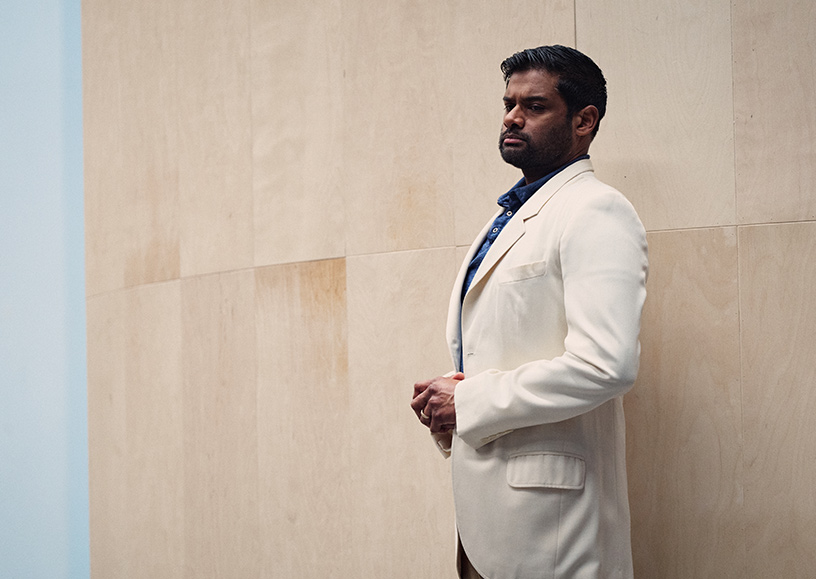
Moreover, Stravinsky’s work was constantly evolving. For example, after Le sacre Stravinsky felt he could go no further along the path his compositional development had taken, and he therefore started again from scratch. He took a completely different course with small-scale compositions in which he explored the most elementary aspects of the music. Even in his final years, after he decided he had reached another impasse with the opera The Rake's Progress, he was quite happy to tackle the twelve-tone system of the Viennese School in his own distinctive way.
That inquiring spirit and continuing creative quest were difficult to digest for critics and audiences, despite the respect they had for the composer. “They expect something else from me... they are surprised to hear me speak in a different language. They are neither willing nor able to follow me as my musical thinking progresses”, Stravinsky later wrote in his autobiography.
Uncomfortable feeling
That was why the premieres of Stravinsky’s version of the well-known classical myth Oedipus got this reaction. Rather than the assurance that comes from familiarity, it left the audiences in Paris and Berlin with an uncomfortable feeling. Oedipus Rex was certainly not an obvious work, not even for an insider and prominent attendee like Schönberg. In his musical recollections, he records the following paradoxical impression, which combines amazement and admiration:
“I don’t know what I am expected to find beautiful in Oedipus. At any rate, it is all negative:
unusual theatre, unusual background, unusual denouement in the action, unusual singing, unusual acting, unusual melody, unusual harmony, unusual counterpoint, unusual instrumentation — it is all ‘un’ without really being something positive.
I could say that the only thing Stravinsky has composed is the repugnance that his work aims to evoke.
My comments on Stravinsky no longer seem as risible to me as a few hours ago; instead, they seem to be something that is almost as bad: rather narrow-minded. Of course, there is nothing I can do about that, even if it argues against me and for the work. After all, I know that the works that cause repugnance in all respects are precisely the works the next generation will find wonderful in all respects.”
Stravinsky’s Oedipus Rex was indeed an unusual piece of music theatre, but it was not unusual in the context of the development of Stravinsky’s oeuvre as a whole. He had previously experimented with new forms of composition, theatre, dance, narration and combinations thereof. To take on the classical tragedy of Oedipus was a logical next step in that development.
A dead language that revitalises
It was Stravinsky himself who had the idea of writing an opera based on a classical tragedy. It occurred to him after he completed the Serenade in A in the autumn of 1925. He was interested in using a well-known tale so that the audience would not be distracted by the story and would be able to concentrate on the music steering the action. Stravinsky opted for the ultimate tragedy, Oedipus Rex by Sophocles.
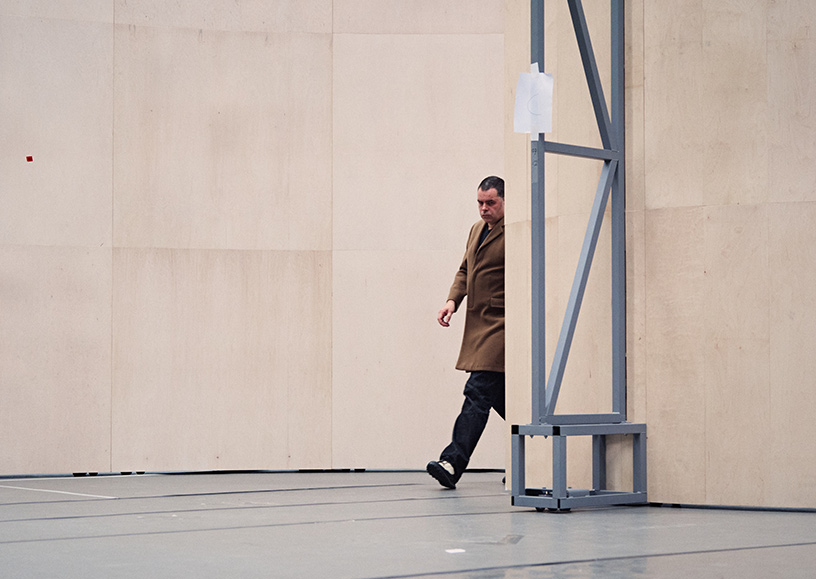
He asked Jean Cocteau to write the libretto. Stravinsky had seen Cocteau’s adaptation of Antigone and was very impressed with how Cocteau had used a modern form to tell the age-old story. Cocteau's absurdist adaptation Orphée also appealed to Stravinsky, and that amalgam of theatrical forms would undoubtedly have been in his mind in the creation of Oedipus Rex. Perhaps that was why, in the end, Stravinsky did not go for the direct clarity that was typical of Antigone. While he let Cocteau simplify the text of Sophocles' Oedipus, he then had this version translated into Latin.
Stravinsky had this flash of inspiration when reading an account of the life of Saint Francis of Assisi that said he used the ancient Provençal language for his meditations and when begging, but spoke Italian or medieval Latin in everyday life. The notion of a translation ‘back’ to an older language gave Stravinsky the idea of using Latin as the basis for his musical ‘meditations’. It was a language that had an element of incantation that he could use in his music: “The choice [of Latin] had the great advantage that I had at my disposal a medium that was not dead but fossilised and had therefore attained a grandeur that made it immune to the risk of vulgarisation.” Latin also allowed Stravinsky to detach the words from their meaning so that he could concentrate fully on their rhythmic and phonetic aspects.
Use of language for the sounds
The use of language purely for the sounds was an approach that Stravinsky had already adopted before in his study of Russian folk poems, which served as the basis for Renard, Les noces, Pribaoutki, Berceuses du chat and other works. There too, he mainly drew inspiration from “the series of words and syllables, the resulting cadence that creates an effect closely related to that of music”, as he wrote in his biography. In these compositions, he investigated the metric variations in verse and changes in emphasis within words. He preferred to use texts full of wordplay, repetitions, alliterations and other features that focus attention on the materiality of the words. The sounds and shapes of the words were more important to him than the meaning. But after the composition of the short opera Mavra in 1922, he decided Russian — “the exiled language of my heart” — had become musically unusable. He found an effective alternative when he came up with the idea of using Latin.
Stravinsky was very pleased with the result, seeing confirmation of what he had expected. “The characters in the great tragedy and their fate were brought to life wonderfully by the Latin. Thanks to the Latin, they took on the grand form and elevated attitudes that befit the majestic nature of the ancient legend.”
Strangely, Stravinsky considered this static representation of the Oedipus tragedy as a revitalised way of letting the tragedy take effect. In his view, it shifted the focus from the psychology of Oedipus and the other characters to the “fatal development” that took place in the story. Stravinsky felt that music could essentially never express individual feelings or psychological states, and therefore he did not look to explore the individual psychology in his Oedipus Rex. His main concern was to expose the structure and mechanism of the tragedy in the music. Rather than Oedipus’ feelings, the work centres on how he as an individual became the victim of circumstances and how those circumstances seemed to operate deliberately to turn the individual into a victim.
Text: Luc Joosten
On the Greek in Antigone
Over het Grieks van Antigone
On the Greek in Antigone
The composer Samy Moussa wrote a libretto for his Antigone based on a variety of Ancient Greek source texts. He finished his composition in 2020.
Classicists will undoubtedly have cause to raise their eyebrows from time to time during Oedipus Rex/Antigone, not just due to Stravinsky’s Latin in Oedipus Rex, but also due to the Greek of Moussa’s Antigone. It is a mix of prose and poetry in various idioms and dialects, taken from multiple periods, stitched roughly together to form a more or less grammatically consistent whole.
That reflects the approach the composer Samy Moussa used to write his libretto. He compiled his own libretto from a wide range of Ancient Greek texts. They included the three great Athenian tragedians from the fifth century BCE (Aeschylus, Sophocles and Euripides), but also less obvious authors. For instance, Moussa incorporated a fragment by the pre-Socratic philosopher Empedocles (fifth century BCE), prose from the Bibliotheca of Pseudo-Apollodorus (first or second century CE) and Imagines by Philostratus of Lemnos (third century CE).
The question was how to glue together the various Greek quotes, from individual words to sentences and lines of poetry, as Moussa had done with the translations. The result is a text that could never have been written as a whole by any individual Ancient Greek author — of any period — but that nevertheless contains many ‘authentic’ echoes of the Greece of Antiquity.
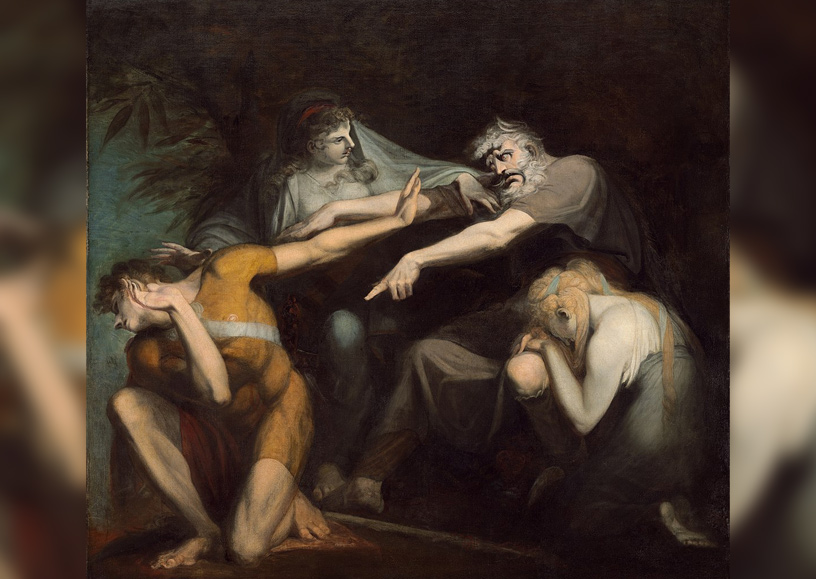
A second reason why classicists might be surprised by Antigone is the pronunciation of the Greek texts. That is because a decision has been taken to use the pronunciation rules of Modern Greek rather than the usual (artificial) pronunciation schoolchildren learn when studying Classics, or a reconstruction of Ancient Greek.
Several considerations led to this decision. First, the language would need to be appropriate for the performance context. The chorus singers would have to be coached in their pronunciation, in a way that allows for the technique of a classically trained voice. The expertise of Sophia Patsi, who is Greek, was indispensable here: she sings in the Chorus of Dutch National Opera and worked as a language coach for Antigone.
This exercise proves exceptionally effective at some points, with Moussa’s composition, the Ancient Greek language and the Modern Greek pronunciation forming a perfect marriage. Take the word ktìnousin (κτείνουσιν), which means ‘they kill’, in the third section of Moussa’s composition. In the Greek version, just the first syllable, ‘kti’, is repeated multiple times, which has an impressive auditory effect. While the chorus describes how the two brothers Eteocles and Polynices kill one another, you hear the hard ‘kt’ sounds as if they are the fatal stabs of a knife. This lets the language add to the experience of the performance, even if you don’t speak Greek (either Ancient or Modern). The way the Greek is used may not be academically justified or authentic, but it is effective as music theatre.
Text: Laura Roling
Bekijk hier de printversie van het boek

